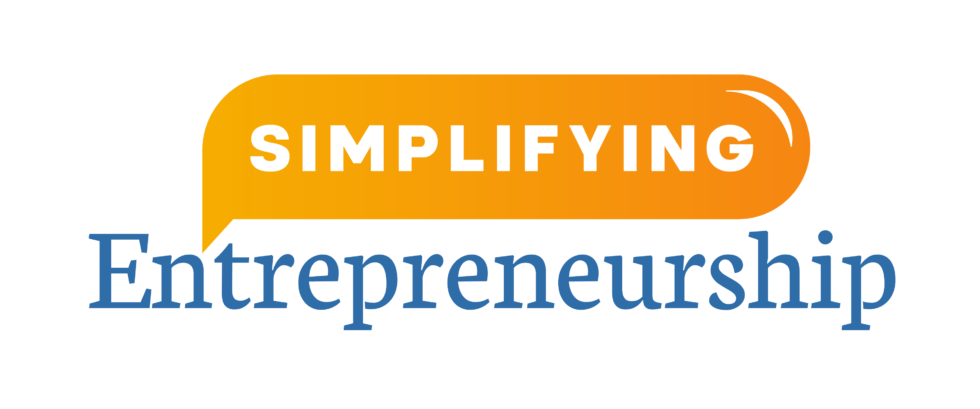What do you do? Many of us were raised to define ourselves by our professions. But what if our profession isn’t easily described?
After all, you’re not just an “entrepreneur.” But saying you’re a “retail store owner” or “personal trainer” doesn’t quite cover it, either.
Your situation is complicated. And that can make it difficult to expand your professional network. When you’re at a networking meet-up and you hear the inevitable question, “What do you do?” you may not know what to say.
As an entrepreneur, you must prove your subject matter expertise while connecting with your ideal audience. To make the greatest impact, define more than “what you do.”
Define how you do it and who you are. From there, it’s much easier to make valuable connections — and avoid that awkward conversational pause!
Find Clarity For Yourself, Not Just Your Team

If you’ve read some of my other articles, you know I’m big on clarity. You must clarify your business’s key promise and purpose, so that you can develop competence that leads to confidence.
And as a leader, you must clarify these elements for your team as well. That way, you can gain their buy-in and help them perform their best.
But clarity isn’t just for your business’s logistics or processes. You need it, too!
Clarify what you do in terms of the impact you make. As an entrepreneur, your endeavors may not fall into typical job categories. And that’s okay!
Instead of trying to find a single word that defines your work, describe your efforts in detail. Who do you help? Which niche(s) do you serve? How do your unique attributes support your enterprise?
This can take some time as you break out of those widely accepted categories. Entrepreneurship requires a mindset shift from “worker” to “creator,” from “job” to “goals and responsibilities.”
So you may not immediately know the language to describe your endeavors. That’s okay!
Spend some time musing about your enterprise. Put those thoughts on paper. Do you see common themes emerging? How does your self-talk change when you embrace your entrepreneurship — rather than shoehorning your projects into traditional “professions.”
From What You Do to What You Provide
The biggest problem with the question “What do you do?” is that it calls for a passive answer. “I’m a teacher.” “I’m a graphic designer.” “I’m a carpenter.”
What do these answers really tell you about a person?
Just like your elevator pitch is (ideally) crafted to show your expertise, your self-description should focus on what you provide. Imagine if we rephrased those standard answers into value-driven affirmations.
“I prepare our youth for personal and professional success by sharing knowledge and helping them develop their skills.”
“I create compelling visuals to help businesses promote their products and meet their goals.”
“I support homeowners’ sense of comfort by building and repairing sturdy furniture and houses.”
See the difference?
Position yourself as a problem-solver, not just a doer. Entrepreneurs especially struggle to quantify themselves with a single word. When they’re asked, “What do you do?” They might answer, “Well, I’m a startup founder/coder/product manager but also a content creator and public speaker, and I like to write, too!”
All admirable endeavors, but hardly a full description of the value they provide. And in a networking event, it can be a conversation-stopper!
After all, getting a blank stare in response is hardly the confidence boost you need to thrive.
So, spend some time rephrasing your “profession” into an affirmation. Then, you can have those networking conversations with greater clarity and confidence.
Share Your Story

When in doubt, focus on the narrative. Everyone loves to hear a good story.
When someone says, “What do you do?” walk them through your journey. Explain how your skills, values, and projects all complement each other.
Better yet, take a page out of the StoryBrand handbook. You’re not the hero of your story: your audience is. You’re the wise guide, the wizard who helps them fulfill their quest.
As an entrepreneur, you’re in the business of providing value. What problem does your ideal client or customer have? How do you identify, emphasize with, and solve that problem? How do you take them from pain to pleasure, frustration to fulfillment?
The StoryBrand model is inspired by Joseph Campbell’s “hero’s journey,” a narrative framework dating back to classical times. Let’s take a look at some “wise guides” and how they describe themselves to the heroes.
In Star Wars, Obi-Wan Kenobi introduces himself to Luke Skywalker as “Old Ben” and tells him about the dying Jedi order. He leaves it up to Luke to decide to fulfill his destiny. Notice he doesn’t immediately describe himself as “a Jedi knight.”
In The Matrix, Morpheus asks Neo to choose between the red pill and the blue pill. He focuses on the (real) experiences he can help Neo discover, rather than simply demanding Neo’s compliance. Otherwise, Neo wouldn’t fulfill his destiny!
In The Karate Kid, Mr. Miyagi initially declines to train Daniel. He presents himself as a handyman who happens to know karate. In reality, he’s a medal-winning martial arts master. But his role was to help Daniel discover his own strength.
There are hundreds more stories in that vein. So, how do you act as the wise guide for your ideal customers or clients?
Tell that story when you’re asked “what do you do?” It’s a meaningful way to explain your impact. And it’s much more likely to get the response, “tell me more!” instead of “hmm.”
Wrapping Up
Networking can be complex as an entrepreneur. How do you accurately describe your endeavors without sounding incoherent?
The key is to break free from your pre-conceived “profession” roles. You’re not just a carpenter/designer/trainer/writer/consultant/business owner. You’re more than the sum of the parts.
Begin by clarifying your impact on your audience. Realize what you provide to them. Then, tell that story.
After all, everyone loves an epic adventure. This article was inspired by a “Business Owner Breakthrough” episode of the Simplifying Entrepreneurship podcast. You can listen here.





0 Comments